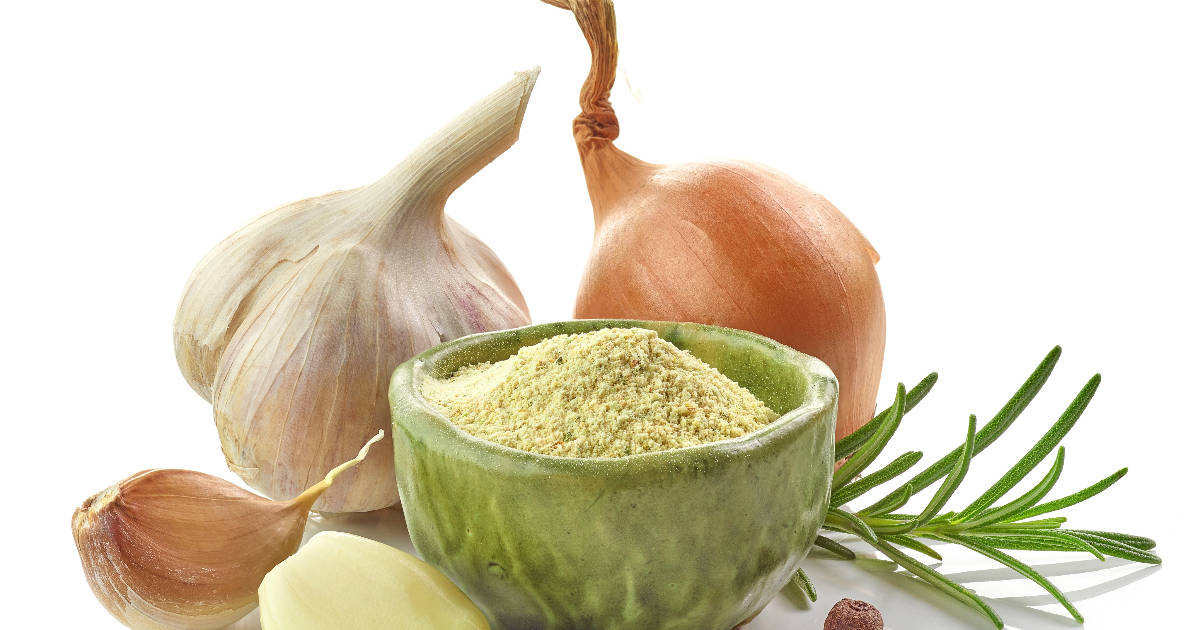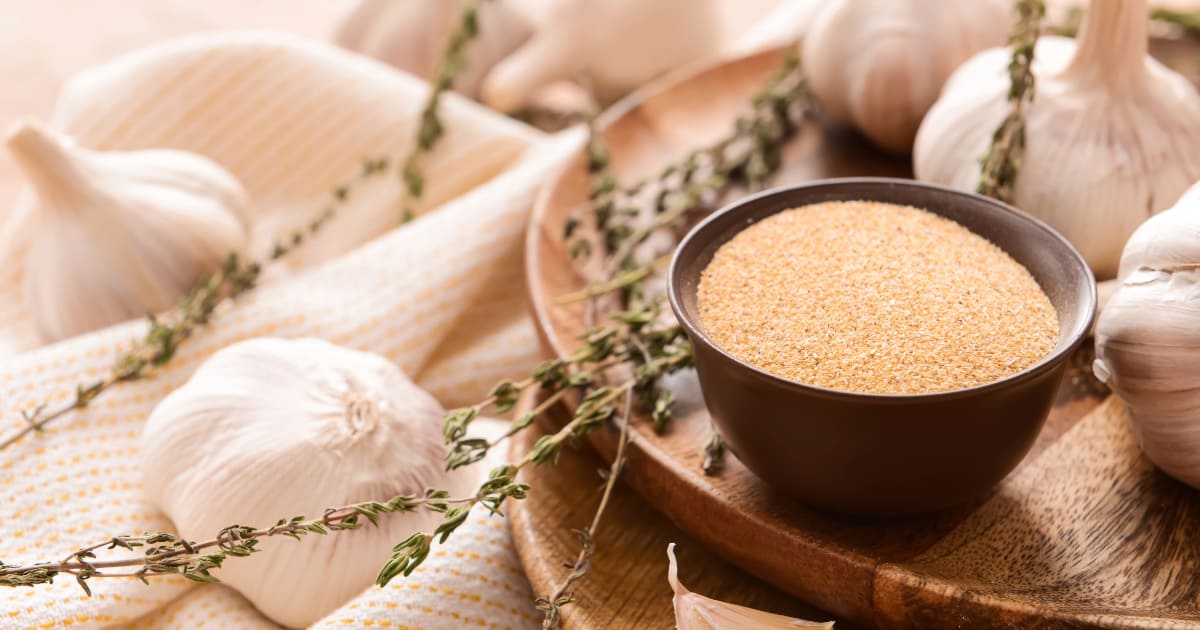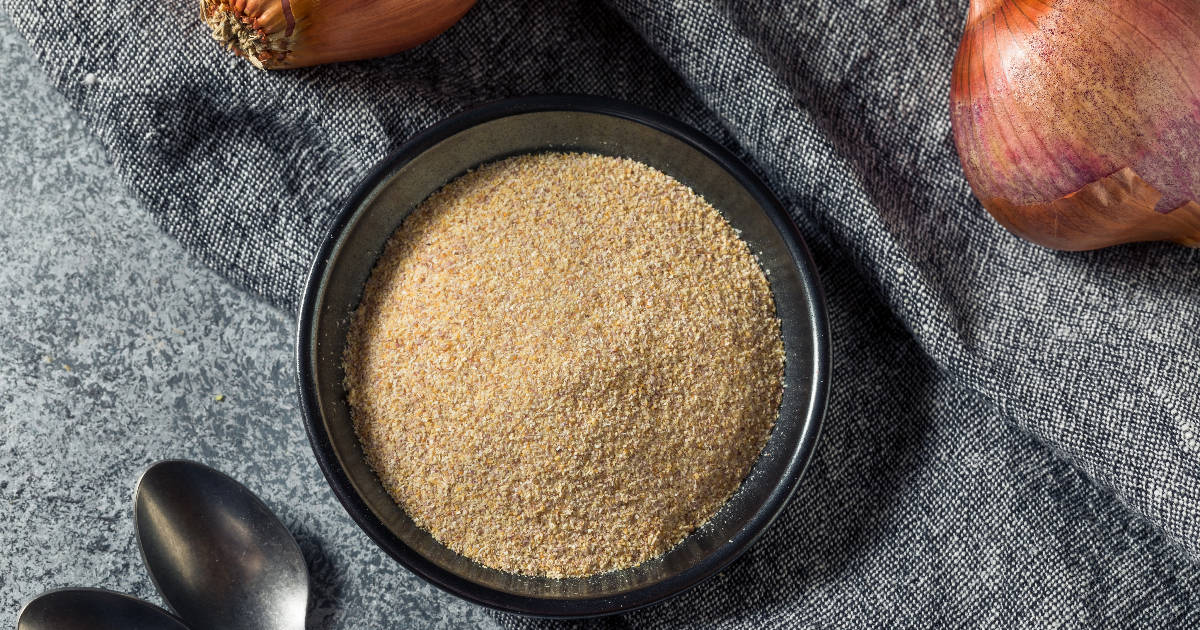Garlic and onion are two of the most common aromatic ingredients used in cuisines around the world. Their distinctive flavors can transform dull dishes into culinary masterpieces.

While fresh garlic and onion add irreplaceable texture and bite, garlic powder and onion powder provide concentrated flavor without the prep work.
But what exactly is the difference between garlic powder and onion powder? How do their flavor profiles compare? And are they interchangeable in recipes?
Flavor Profiles
Garlic powder has an intensely pungent, sharp flavor that can be overpowering if you use too much. It provides the quintessential flavor of garlic, with spicy, savory, and slightly sweet notes. Onion powder has a more subtle, earthy, and slightly sweet flavor. It provides onion flavor without the tear-inducing vapors and pronounced bite of fresh onion.
So garlic powder gives you a bold, in-your-face garlic flavor, while onion powder offers mellow, sweet onion notes. Keep these flavor profiles in mind when deciding which to use in a recipe.
Uses for Garlic Powder vs. Onion Powder
Garlic powder and onion powder work well in many of the same types of recipes, but they aren't necessarily interchangeable.
Where to Use Garlic Powder

Garlic powder is excellent for boosting the flavor of:
- Salad dressings, marinades, sauces, and dips
- Roasted vegetables, potatoes, and meats
- Pasta dishes, pizza, breads
- Soups, stews, chilis
- Rubs for meat and poultry
A little garlic powder goes a long way. Use a light hand when seasoning savory foods so the garlic doesn't overwhelm other ingredients.
Where to Use Onion Powder

Onion powder works well in:
- Dips, dressings, marinades, and sauces
- Casseroles, soups, chilis
- Meatloaf, burgers, meatballs
- Roasted veggies
- Dry rubs for meats
- Dredging flour for fried foods
Onion powder provides a more subtle background flavor in most dishes. It's great for the overall seasoning of savory foods.
Substituting Garlic and Onion Powder
In a pinch, garlic powder and onion powder can be substituted for one another. However, the flavor won't be exactly the same.
If a recipe calls for onion powder and you only have garlic powder, use about 1/4 of the amount of garlic powder. So if a recipe calls for 1 teaspoon onion powder, use 1/4 teaspoon garlic powder. Garlic is much more pungent, so you need much less.
Conversely, if a recipe calls for garlic powder and you only have onion powder, use about 4 times the amount of onion powder. The flavor will be more mild.
Keep in mind that the final dish may end up with a more pronounced garlic or onion flavor by making substitutions. For best results, use garlic powder in recipes developed specifically for its strong flavor. Use onion powder when a subtle, sweet onion flavor is intended.
Purchasing and Storing Garlic and Onion Powder
You can find both garlic powder and onion powder in the spice aisle of the grocery store. They are inexpensive pantry staples.
For optimum flavor, look for powder made from fresh garlic or onions. Powder that contains anti-caking agents can sometimes have a stale, chemical taste.
Store garlic powder and onion powder in airtight containers in a cool, dark place. Heat, light, air, and moisture will cause them to lose flavor and freshness faster. Properly stored, they will keep for up to 1 year.
Homemade vs. Store Bought
You can easily make your own garlic powder and onion powder at home by dehydrating fresh garlic and onions. Homemade is incredibly flavorful. But store-bought powder works well too. Opt for powder made without anti-caking agents for the freshest flavor.
Other Flavor Boosters
In addition to onion and garlic powder, other great flavor boosters to have on hand are:
- Dried basil, oregano, parsley
- Smoked paprika
- Chili powder
- Ground cumin
- Ground ginger
- Dry mustard
- Cayenne pepper
Keep your pantry stocked with a variety of dried herbs and spices. They provide a big flavor for very little cost.
FAQs
Is garlic powder the same as garlic salt?
No. Garlic salt is a mixture of garlic powder and salt. It contains much more salt by volume than garlic powder. Don't substitute garlic salt 1:1 for garlic powder or your dish may end up excessively salty.
Can you replace fresh garlic with garlic powder?
It depends on the recipe. In dressings, marinades, and sauces, you may be able to substitute 1/8 teaspoon of garlic powder per clove of fresh garlic. You'll get the flavor but miss out on the chunky texture. Garlic powder likely won't work as well in recipes where you want intense garlic flavor or where garlic is a major component, like garlic bread.
What can I substitute if I don't have onion powder?
Options for substituting onion powder include:
- Finely minced raw onion
- Dried onion flakes or bits
- Onion salt - Use about 3/4 of the amount of onion powder called for
- Garlic powder - use about 4 times the amount of garlic powder for a more garlicky flavor
- Leave it out entirely if just provides background flavor
What is the difference between garlic salt and garlic powder?
Garlic salt is a mixture of garlic powder and salt. It contains much more salt by volume compared to regular garlic powder. Don't substitute garlic salt 1:1 for garlic powder or your dish may end up excessively salty.
Can you use onion powder instead of fresh onions?
Yes, onion powder can stand in for fresh onions in some recipes. However, you will miss out on the texture and robust flavor that fresh onions provide. For 1 cup of chopped raw onion, substitute 1-2 tablespoons of onion powder. Increase or decrease your taste preferences.
Is it better to use fresh or powdered garlic and onion?
Fresh garlic and onion provide unbeatable flavor, aroma, and texture. But powdered garlic and onion offer convenience. Powders are ideal when you want to quickly add flavor without prep work. For best results, bloom the powders briefly in oil or liquid to intensify their flavors. In recipes where garlic and onion really shine, opt for fresh instead of powdered whenever possible.
How long does homemade garlic and onion powder last?
Properly stored, homemade garlic powder and onion powder will maintain optimum flavor and freshness for 3-6 months. To maximize shelf life, store homemade powders in airtight containers in a cool, dark place. Commercial powders typically last 6-12 months under ideal storage conditions.
Conclusion
Garlic powder and onion powder are versatile seasonings that belong in every kitchen. Garlic powder offers a bold, pungent garlic flavor, while onion powder provides subtle, sweet onion notes.
Garlic powder excels when you want food to taste intensely of garlic. Onion powder is perfect for overall savory seasoning.
In a pinch, they can be substituted for one another by adjusting the amounts. Keep both on hand so you always have options for seasoning your food!

